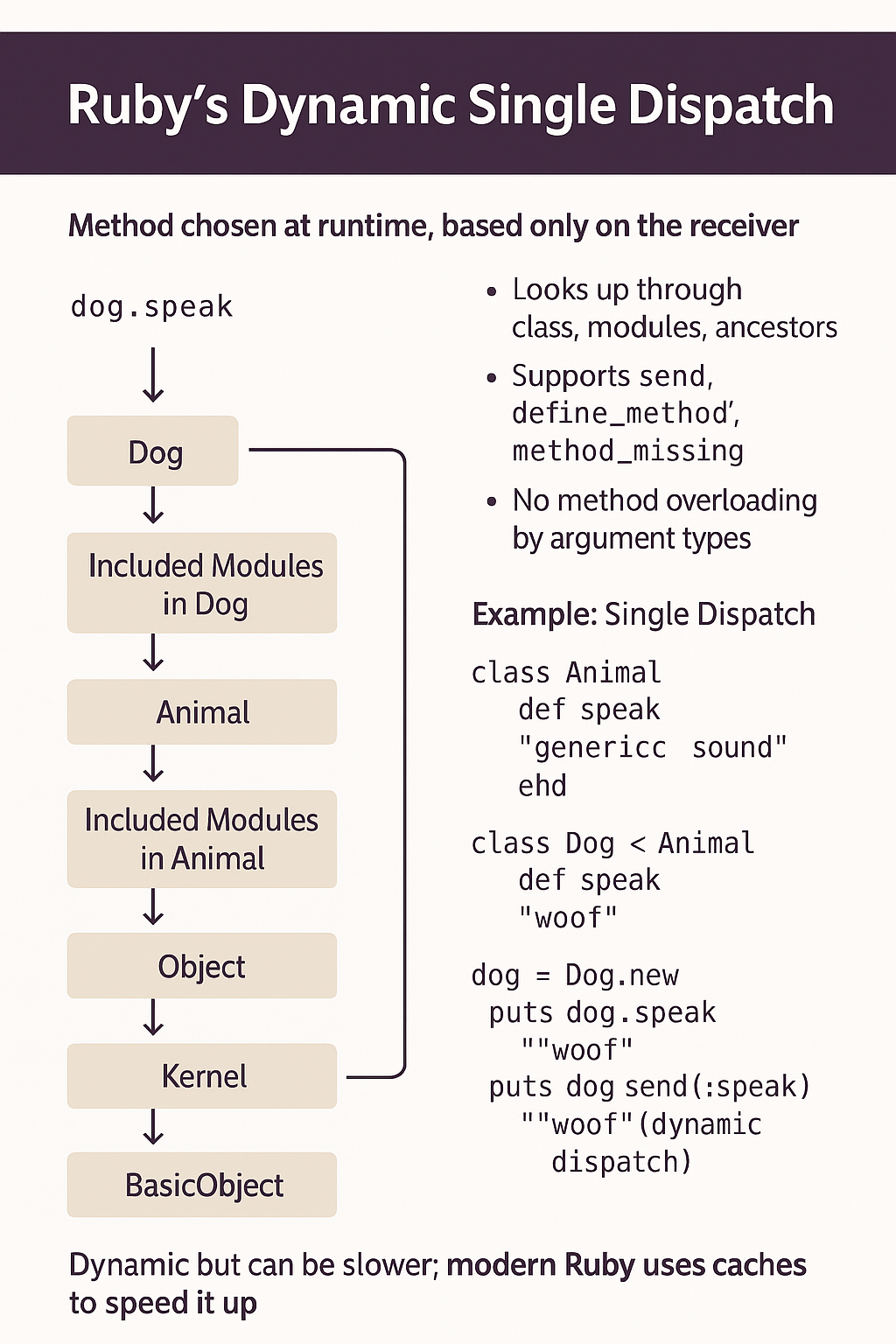🐙 Ruby’s Dynamic Single Dispatch Explained
In Ruby, method calls are resolved dynamically at runtime based on the receiver’s class — this is known as dynamic, single dispatch.
Here’s what that means and why it matters:
🔧 How Ruby Finds and Calls Methods
-
Single Dispatch Ruby picks the method to run based only on the object before the dot (the receiver). It does not consider the argument types.
Unlike languages with double dispatch, where both receiver and arguments matter.
-
Method Lookup Path Ruby checks the receiver’s class first, then its included modules and ancestors, up the inheritance chain, until it finds a matching method.
-
Dynamic Dispatch You can call methods dynamically using:
obj.send(:greet, "world")sendbypasses visibility (can call private methods).public_sendrespects visibility rules.
-
Define Methods at Runtime Ruby lets you add methods dynamically:
define_method(:dynamic_hello) { puts "Hello from runtime!" } -
Fallback with
method_missingIf no method is found, Ruby callsmethod_missing, which you can override to handle unknown methods gracefully.
⚡ Quick Example: Single Dispatch in Action
class Animal
def speak
"generic sound"
end
end
class Dog < Animal
def speak
"woof"
end
end
pet = Dog.new
puts pet.speak # => "woof"

Even if you pass different arguments, Ruby always chooses Dog#speak based only on the receiver’s class.
🛠 Performance & Limits
- Ruby interpreters (like JRuby, TruffleRuby) use inline caches to speed up repeated method lookups.
- Ruby does not support method overloading — redefining a method name overwrites the old one.
- Using
sendwith unchecked input can introduce security risks.
✅ In short: Ruby’s method dispatch is:
- Dynamic → decided at runtime
- Single → based only on the receiver’s class
- Flexible → supports metaprogramming (
send,define_method,method_missing)
✏️ Quick Recap
- ✅ Method chosen at runtime, based only on the receiver
- ✅ Looks up through class, modules, ancestors
- ✅ Supports send, define_method, method_missing
- ✅ No method overloading by argument types
- ✅ Dynamic but can be slower; modern Ruby uses caches to speed it up
✨ That’s why Ruby feels so flexible: you can change behavior at runtime, build DSLs, or intercept calls — all thanks to dynamic single dispatch.